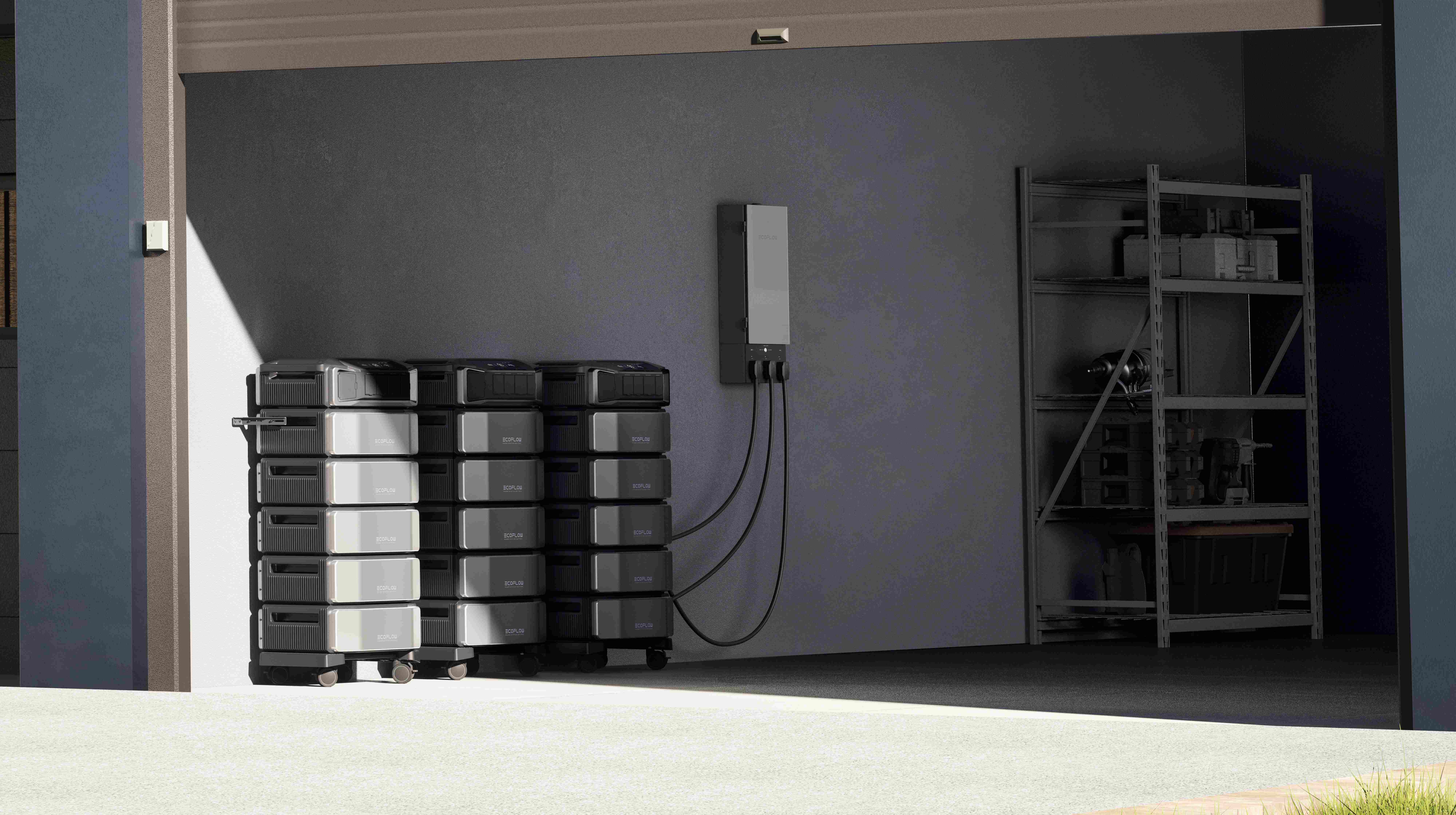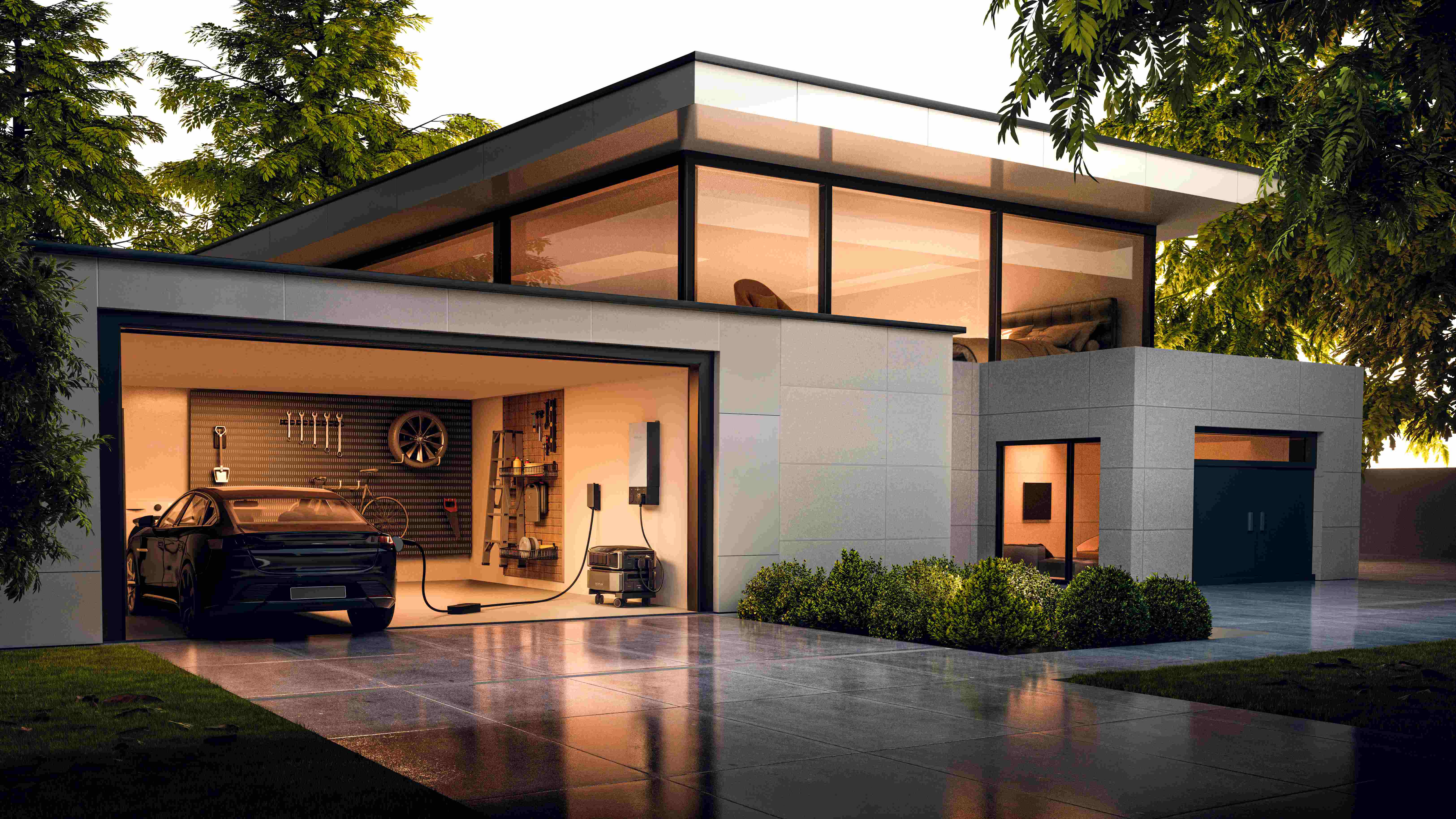How to Power Outdoor Events with a Home Battery Backup
Parties in the backyard, scary Halloween decorations, and movie nights under the stars are all great things to do when it gets cooler. It's always a pain to run power for lights, sound, and other things. It's not fun to do things like pull out a bunch of extension cords or turn on a loud, stinky generator. You can get clean, quiet power anywhere if you have a portable battery backup for your house.
A Simple Guide to Calculating Your Event's Power Needs
It's not as hard as it sounds to set the right amount of power. Adding things up is all you need to do to make sure your party goes off without a hitch.
Device Inventory
First, take a quick look around your setup and write down everything that needs power. It may surprise you how much it all adds up to. Are you running:
String lights or spotlights?
A sound system or a DJ setup?
A projector for an outdoor movie?
Inflatable yard decorations?
Slow cookers for chili or hot cider?
A fog machine for that spooky effect?
Watts vs. Watt-Hours
There is a wattage (W) number on every device. You can usually find this on a small tag on the cord or on the device itself. Its energy use is shown by this number. Just add up the wattages of all the things on your list that will be on at the same time.
For a battery, watt-hours (Wh) are the most important number because they show how much power it has. Power in watts (W) tells you how fast you're using fuel. Power in watt-hours (Wh) tells you how much fuel you have.
Let's say your movie night setup looks like this:
Projector: 150W
Speakers: 50W
String Lights: 100W
Total: 300W
If you have a 2000Wh house backup battery, you can run that 300W setup for over six hours (2000Wh/300W=6.67 hours). It's always smart to have a little more juice than you need, just in case.
Peak Power
One last thing: some electronics with motors, like a blender or a mini-fridge, need a big jolt of power just to get started. This is called a "peak" or "surge" wattage. When you're looking at a whole house battery, make sure its peak output can handle the biggest power surge from your devices. High-end systems, like the Delta Pro Ultra X, are built to handle these massive surges, ensuring even demanding appliances start up smoothly without tripping the system.
Enjoy the Peace and Quiet of a Silent Power Source
The real magic of using a whole house battery for an event is what you don't hear. It's completely silent.
Party Atmosphere
A gas generator makes a loud, annoying hum that everyone has to talk over. It drowns out your party music or the movie sound. It makes us feel terrible. After installing house batteries, the only sounds that will play are music, laughs, and people talking. In the background, the power is just there, doing its job.
Neighborhood Friendly
This silence is a huge plus in any neighborhood. You don't have to worry about noise issues if you keep the party going late into the night. A power source that is quiet is a power source that cares, so you can enjoy yourself instead of checking the time.
Essential Safety and Durability Tips for Outdoor Use
Using electricity outside requires a bit of common sense, but a quality house battery backup has a lot of safety features built right in.
Safety First
These power stations are designed to prevent overheating, short-circuiting, or overcharging. Still, a few good practices go a long way. Set the unit on a flat, solid surface where it won't get tripped over. Tuck your cables away safely or tape them down so nobody takes a tumble. It's also a good idea to keep the unit clear of anything flammable, like a pile of dry autumn leaves or crepe paper decorations.
Durability
Today's house batteries are made to last. The outside of them is generally strong enough to handle being moved around. Furthermore, a lot of them are weatherproof, which means they won't mind a little dust or rain. However, you shouldn't leave one out in the rain because it's not completely waterproof, but it's good to know that a little rain won't ruin your night.


From Weekend Fun to Weekday Emergency Preparedness
The best part about a portable house backup battery is how useful it is long after the party is over. It's a smart investment for your home's emergency plan.
Dual Purpose
The party was a hit. Now, you wheel the power station inside, plug it in, and let it recharge. Fast forward a few weeks, and a big storm knocks out power on your whole block. That same battery becomes your hero all over again.
Emergency Use
In the event of a power outage, a full house battery backup system can be lifesaving. Simply leaving some lamps on is not enough. Some of your important tools, like the fridge, may run on it, keeping hundreds of dollars worth of food from going bad. Phones, Wi-Fi routers, and even medical equipment that you need to stay in touch can all be charged. When you need more power for several days, some systems, like the Delta Pro Ultra X, can be expanded. This gives you a sense of security that's hard to put a price on.


Frequently Asked Questions About Home Battery Backup
Q1: What's the Real Difference Between a Battery and a Gas Generator?
The main differences between battery and gas generator are that home batteries are silent, emission-free, and low-maintenance, while gas generators are loud, produce fumes, and require regular upkeep. Gas generators come with the baggage of storing fuel, which can go bad, and require maintenance like oil changes. A battery, on the other hand, is always ready to go with the push of a button and can even be used indoors during an outage.
Q2: How Do You Recharge a Home Battery?
To charge a home battery, you can plug it into a regular wall outlet, connect it to solar panels, or use the 12V outlet in your car. Like your phone, the most usual way is to plug it into a wall outlet at home. If you want to be truly off the grid, solar panels can charge it from the sun. The car plug is useful when you're on the road or when nothing else works.
Q3: How Big of a Battery Do I Need for My House?
Exactly what size battery you need depends on which devices you want to run and for how long. For a backup in case of an emergency, make a list of the things you can't live without. When the compressor is going, a fridge might use 700 to 800 watts. You're drawing about 1,000 watts with the lights (50W), the TV (100W), and the Wi-Fi router (10W). If the fridge isn't going all the time, a 2,000Wh battery could keep up with that load for a lot longer.
Q4: Are Home Batteries Actually Portable?
Yes, mobility is very important. Smaller units have handles for easy carrying, while larger ones have wheels and telescoping handles. Some units with less space can weigh less than 50 pounds, which makes them easy to move around. The bigger, stronger types are heavier, but they're made to be easy to move, like a rolling suitcase.
Q5: Can I Use Home Batteries if It's Raining?
No, you shouldn't leave your home battery out in the rain. Even though most good units have ratings that say they can handle dust and light water splashes, they are not waterproof. To keep it safe, you should always keep the unit under a porch, a pop-up shelter, or a strong tarp to keep it out of the rain and damp spots.
Q6: Can a System Like Home Batteries Take My Home Completely Off-Grid?
Yes, a system like the Delta Pro Ultra X can take a home off-grid, but it requires a complete energy setup. It has the power to run an entire home, including central AC, and its massive expandable battery can be paired with solar panels and a generator for energy independence.
Going completely off-grid is a lifestyle commitment, however. You must have a large enough solar array to meet your daily needs and be prepared to manage your power consumption, especially during bad weather.
Power for Every Season and Every Reason
A whole house battery is one of those things you'll find more and more uses for. It gives you the freedom to set up a party anywhere you want, without restrictions. From powering holiday light displays to providing a safety net during a storm, it's a versatile piece of gear that delivers value all year round.
For press requests or interview opportunities, reach out to our media team
media.na@ecoflow.com